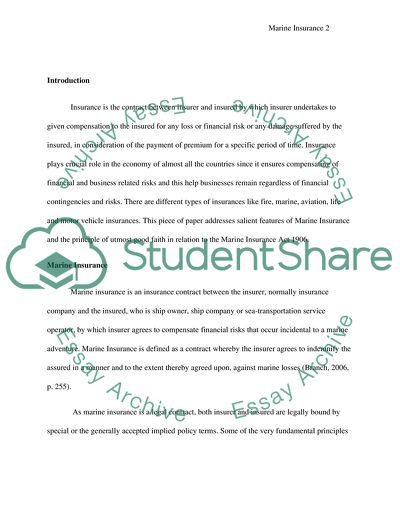Cite this document
(Marine Insurance Essay Example | Topics and Well Written Essays - 1500 words, n.d.)
Marine Insurance Essay Example | Topics and Well Written Essays - 1500 words. https://studentshare.org/law/1761799-a-contract-of-marine-insurance-is-a-contract-based-on-utmost-good-faith-what-do-you-understand-by-this
Marine Insurance Essay Example | Topics and Well Written Essays - 1500 words. https://studentshare.org/law/1761799-a-contract-of-marine-insurance-is-a-contract-based-on-utmost-good-faith-what-do-you-understand-by-this
(Marine Insurance Essay Example | Topics and Well Written Essays - 1500 Words)
Marine Insurance Essay Example | Topics and Well Written Essays - 1500 Words. https://studentshare.org/law/1761799-a-contract-of-marine-insurance-is-a-contract-based-on-utmost-good-faith-what-do-you-understand-by-this.
Marine Insurance Essay Example | Topics and Well Written Essays - 1500 Words. https://studentshare.org/law/1761799-a-contract-of-marine-insurance-is-a-contract-based-on-utmost-good-faith-what-do-you-understand-by-this.
“Marine Insurance Essay Example | Topics and Well Written Essays - 1500 Words”. https://studentshare.org/law/1761799-a-contract-of-marine-insurance-is-a-contract-based-on-utmost-good-faith-what-do-you-understand-by-this.


